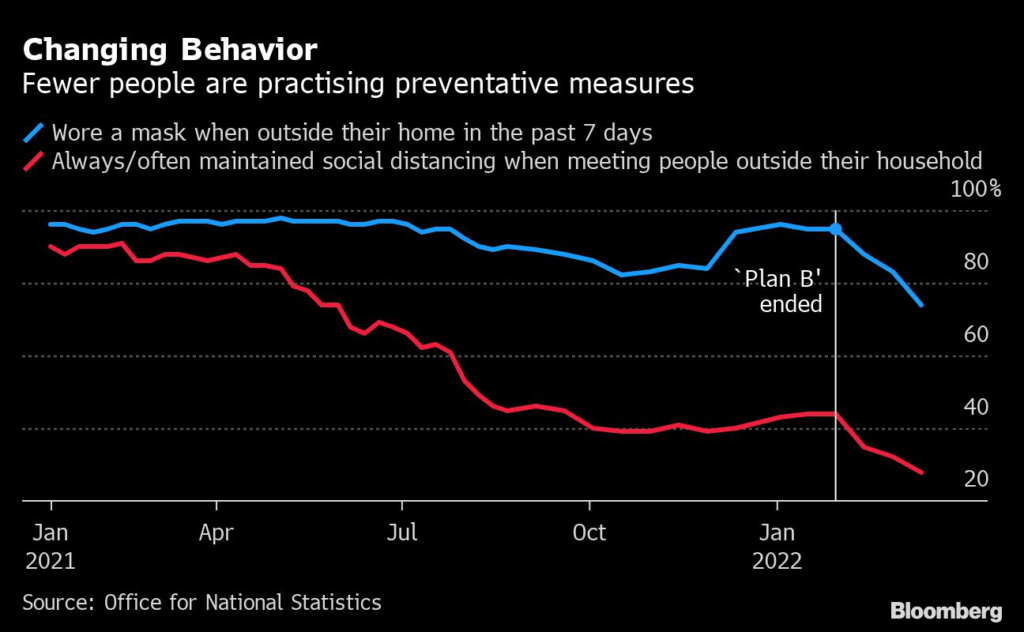(Bloomberg) — Two years ago, Prime Minister Boris Johnson locked down the U.K., instructing people to stay at home and imposing sweeping restrictions in a desperate effort to slow the surging coronavirus.
Today, lockdowns are history. But Covid-19 remains.
In recent weeks, cases have risen anew, driven by the highly infectious omicron BA.2 subvariant. On Wednesday, the government reported more than 100,000 new cases — far above levels during the first wave in 2020, when testing was less widespread. The number has averaged almost 80,000 over the past two weeks, based on reporting-date figures.
The introduction of the first lockdown in 2020 was a major reversal for Johnson. He’d been reluctant to implement such strict measures, and he was heavily criticized for delaying action.
The latest rapid spread of infections may also be linked to changes in behavior. Johnson announced the end of virtually all Covid-related restrictions in January after a series of start-stop moves as pandemic waves came and went over the past two years.
More people have returned to offices, are traveling again, and surveys show that the social distancing measures that came to define life during the pandemic are fast being discarded.
One major U.K. success story has been its vaccination rollout. Almost 86% of the country has had two doses, and 67% have got a booster shot. That’s helped to keep hospitalizations and deaths lower relative to earlier coronavirus waves.
But even with that huge effort to rapidly develop vaccines and get them into people, total Covid deaths have surpassed 160,000.
And the emergence of new variants continues to drive fresh surges in infections, as it has in multiple countries around the world.
There’s hope that Covid is moving toward a less dangerous phase, with omicron causing less severe illness, and vaccines and new therapies bolstering the body’s defenses against the disease. Still, in addition to variants, scientists worry about long Covid and the measures in place to respond to future flare-ups.
World Health Organization officials and some scientists have expressed concerns over the pace at which restrictions were lifted, but politicians were under pressure from a public eager to move on from two years of limitations on movement and socializing.
The U.K. has also moved to reduce the availability of costly Covid tests.
“I understand that the U.K. government is keen to stop spending on expensive testing infrastructure, and people have had enough of isolation requirements,” said Simon Clarke, associate professor in Cellular Microbiology at the University of Reading. “But the government must be careful not to dismantle all the systems which have allowed U.K. planners to stay ahead of the omicron wave through a successful vaccination drive.”
(Updates with latest daily figures in second paragraph.)
More stories like this are available on bloomberg.com
©2022 Bloomberg L.P.











